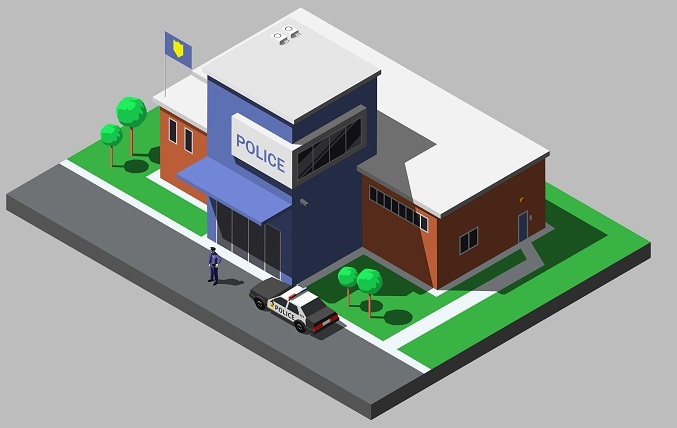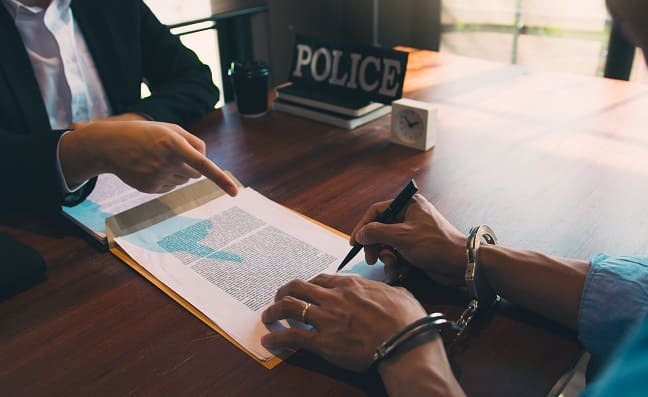
 Data Structure
Data Structure Networking
Networking RDBMS
RDBMS Operating System
Operating System Java
Java MS Excel
MS Excel iOS
iOS HTML
HTML CSS
CSS Android
Android Python
Python C Programming
C Programming C++
C++ C#
C# MongoDB
MongoDB MySQL
MySQL Javascript
Javascript PHP
PHP
- Selected Reading
- UPSC IAS Exams Notes
- Developer's Best Practices
- Questions and Answers
- Effective Resume Writing
- HR Interview Questions
- Computer Glossary
- Who is Who
What is the full form of CPO?
Introduction
Central Police Organization (CPO) is a branch of the Indian police. Constabulary, Upper Subordinate, State, and Central all make up tiers of the police force's organisational structure.

There are numerous specialised units within the organisation in addition to the standard police force. They include the National Disaster Response Force, Narcotics Control Bureau, Research and Analysis Wing, Special Protection Group, and National Investigative Agency. Chief Purchasing Officer responsibilities vary from location to location.
Definition of CPO
The Central Police Organization (CPO) is a government agency responsible for policing in the country, including crime prevention, criminal investigation, security services, police research and development, and police training. There are a number of police agencies run by the federal government, collectively referred to as the Central Police Organisations (CPOs).The Assam Rifles, Central Reserve Police Force, Border Security Force, Central Industrial Security Force, Indo-Tibetan Border Police, and National Security Guards are all part of the CPMF.
Examples of CPOs in India
The Central Government is responsible for the establishment of a variety of different police organisations, which are together referred to as the Central Police Organisations (CPOs). There are two main categories that may be used to categorise CPOs that are funded by the Central Government.
The first category consists of the armed police organisations, which are collectively referred to as Central Armed Police Forces (CAPFs). There is also the Central Bureau of Investigation (CBI), the Directorate for the Coordination of Police Wireless Communications, and the Bureau of Police Research and Development(BPR&D) (DCPW).
Some of the examples are listed below
Intelligence Bureau
Central Bureau of Investigation
Bureau of Police Research & Development. (BPRD)
National Crime Records Bureau
National Investigation Agency
Sardar Vallabhbhai Patel National Police Academy, Hyderabad.
North Eastern Police Academy, Shillong.
National Institute of Criminology & Forensic Science. (NICFS)
National Disaster Response Force. (NDRF)
Roles and Responsibilities of CPOs
The Central Armed Police Forces ("CAPF") valiantly guard the country's borders against foreign aggression and infiltration, and they also provide assistance to state governments via improved peace and order, insurgency prevention, anti-naxal efforts, and counterterrorism measures.
Helplines staffed by trained persons and supported by rapid response units have been established by the Central Reserve Police Force ("CRPF") to look out for the safety of its members and their families. They're protecting their loved ones by keeping them apart from the troops. Those on leave from the CRPF may now participate in a new "work from home" program. In local communities, for instance, staff have been teaching youngsters yoga and delivering food rations to the poor. Masks for defense have been produced by sewing factories.
The National Disaster Response Force ("NDRF") aims to provide PPEs to 50% of each unit. Staff at land, sea, and air ports have been receiving training from the NDRF on how to best assist arriving passengers and raise public awareness. Helping states raise awareness about Covid-19 is another responsibility of the response mechanism.
Those tasked with maintaining order at public distribution centers have also acquired the respect of those they serve. Every organization has upped its game, implemented government-issued SOPs, and made sure its members maintain healthy social distance. Community service and the distribution of necessities to the populace have been high priorities for all troops in their different zones of operations.
The Border Security Force ("BSF") has begun a number of initiatives to improve the lives of the locals in its operational region, in addition to providing for the unique needs of their own soldiers. In order to combat the spread of the Covid-19 virus, they have provided rations to daily wage workers, assisted the needy in outlying areas, held medical camps for those infected with the virus, distributed masks crafted by BSF tailors, and educated the public on the importance of maintaining personal space and practicing basic hygiene.
Importance of CPOs in Maintaining Law and Order
The primary mission importance of the Central Reserve Police Force (CRPF) is to support the state and union territory police forces in enforcing the law and suppressing insurrection. It has been sent out to fight terrorism in a number of different areas, and it also participates in UN peacekeeping operations across the world.

The execution of police duties throughout the nation is already governed by a number of Central Acts. Police organisational structure and operational procedures are spelled out in detail in the legislation.
In a disturbed and chaotic society, all the resources are used up on trivial matters. Yet, if kids feel safe and secure, with rules in place to keep them that way, they will flourish. The police play a crucial part in society at this point. There was always such a structure in place, with a wide range of roles and responsibilities.
Conclusion
It can be concluded that there would be a significant loss of foreign currency if the home ministry did not organise for the local production of weaponry and equipment, thus the Centre's participation is crucial.
FAQs
Q 1. Who coordinates and supervises the police station ?
Ans: The Home Office is in charge of directing and supervising law enforcement. The Director General of Police/Inspector General of Police is responsible for the bulk of administrative tasks in the police force. police structures in major metropolises like Delhi, Kolkata, Mumbai, Chennai, Hyderabad, etc.
Q 2. What is the role of police in India after independence?
Ans: Maintaining public order and preventing and detecting crime were the primary responsibilities of our country's police service after independence. According to Article 246 of the Indian Constitution, the states are responsible for maintaining and managing the police force in the country.
Q 3. What is the role of the police in maintaining law and order inside the cities ?
Ans: Population growth is a natural byproduct of cities' expanding capabilities. Nevertheless, there are not enough decent schools and jobs to ensure that everyone has access to a quality education and stable work. The police force is crucial to society because of its role in upholding law and order. This mentality, therefore, has to be altered. The police force must change its approach. They need to use cutting-edge tech to catch criminals faster and put them behind bars.

